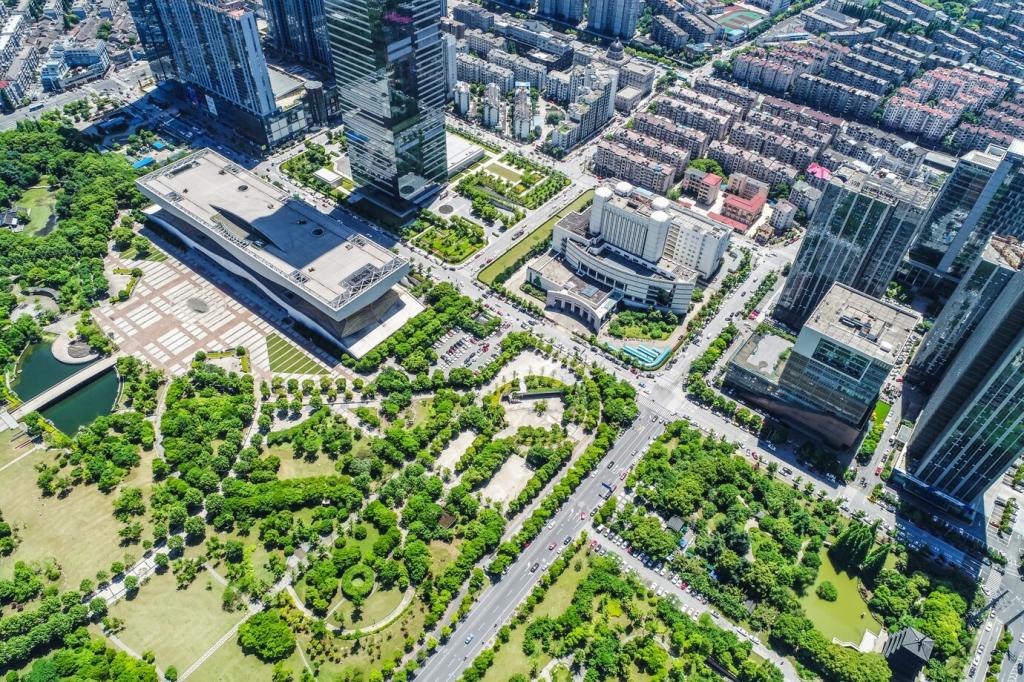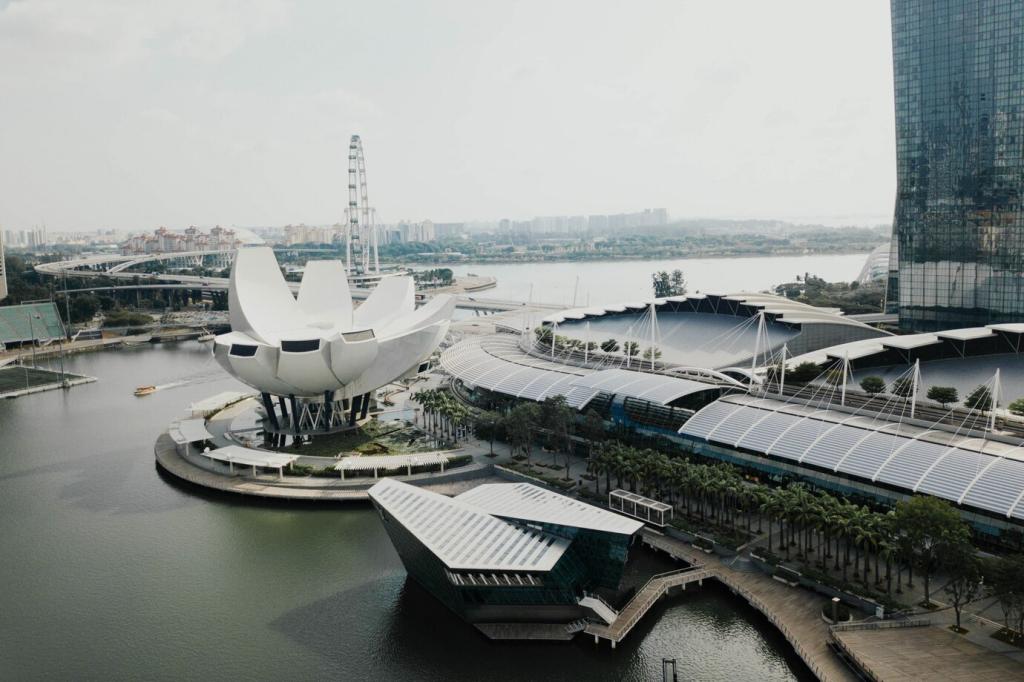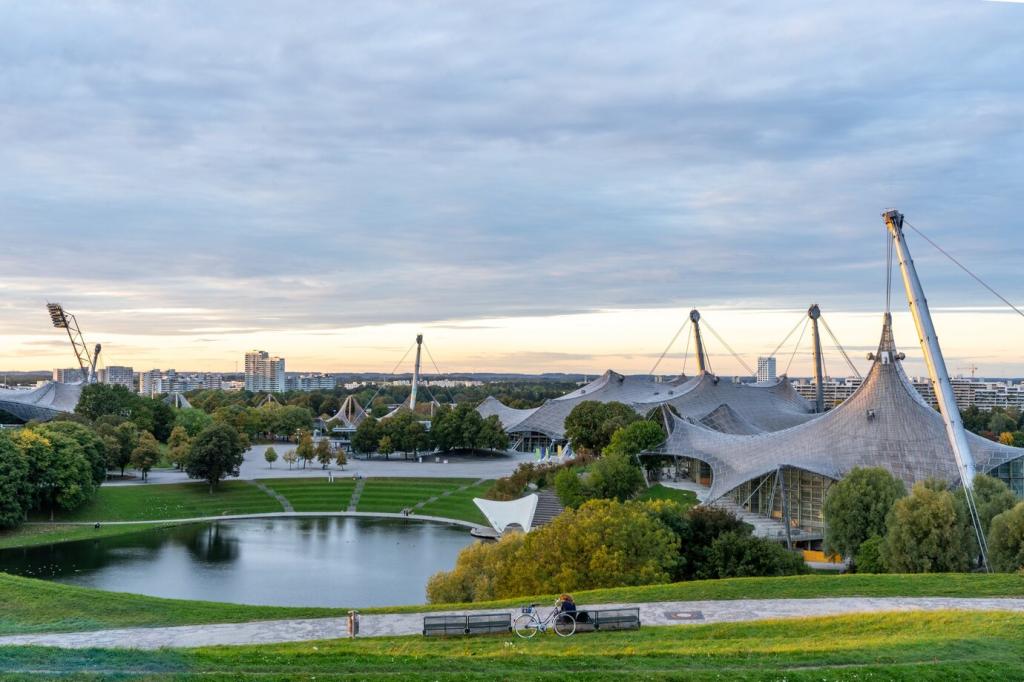Sustainable Urban Growth through Clean Energy
Harnessing clean energy is at the heart of sustainable urban growth, driving cities toward a resilient and environmentally responsible future. As urban populations surge worldwide, the demand for energy intensifies, amplifying pressures on natural resources and city infrastructures. Sustainable development requires rethinking traditional energy systems, embracing innovative solutions that balance urban expansion with ecological stewardship. Clean energy initiatives not only reduce carbon emissions but also foster healthier, more livable cities. This approach empowers urban communities to thrive economically and socially while safeguarding the environment for generations to come.


Decentralized Renewable Power Generation
The deployment of decentralized renewable energy sources, such as urban solar panels, micro-wind turbines, and geothermal systems, is transforming how cities generate and consume power. Unlike traditional centralized plants, these systems are integrated within neighborhoods or even individual buildings, reducing transmission losses and increasing energy security. Decentralization enables communities to participate directly in energy production, stimulating local economies and fostering a sense of ownership over environmental outcomes.

Smart Grid Implementation
Smart grids leverage digital technology to manage electricity flows dynamically, matching supply with demand in real time. These advanced systems enable the integration of variable renewable energy sources, such as solar and wind, while maintaining grid stability. Through advanced sensors, automation, and data analytics, smart grids ensure efficient energy distribution and facilitate rapid responses to outages or system disruptions, creating more resilient urban environments.

Electrification and Clean Mobility
Urban growth depends not just on static energy needs, but also on facilitating efficient, low-impact transportation. Electrification of public transit, private vehicles, and even micro-mobility options reduces urban emissions and noise pollution. Coupled with renewable energy grids, these electrified systems create a cleaner, healthier urban atmosphere and support ongoing innovation in sustainable transportation infrastructure.

Government policies that offer incentives for renewable energy projects draw private investment into clean urban development. Tax credits, grants, and favorable tariffs encourage commercial and residential sectors to adopt solar panels, wind projects, and energy-efficient technologies. By reducing the financial risks and improving returns, these measures accelerate the transition to sustainable energy, making environmental stewardship both feasible and attractive.

Urban planning policies play a critical role in shaping sustainable growth patterns, guiding the development of energy-efficient buildings, green spaces, and sustainable transportation corridors. Zoning laws and construction codes can require or encourage the use of renewable energy systems, green roofs, and high-performance building materials. Integrating energy considerations into urban planning ensures that growth aligns with ecological objectives while supporting affordable housing and vibrant communities.

Successful clean energy transitions depend on the active participation of local communities in the decision-making process. Engaging residents, businesses, and non-profit organizations fosters buy-in, harnesses local knowledge, and tailors solutions to diverse socio-economic contexts. Transparent governance and participatory processes build public trust, ensure social equity, and equip cities to adapt policies to real-world challenges and community needs.

Job Creation and Workforce Development
Transitioning to clean energy systems generates a wide array of employment opportunities in installation, maintenance, research, and administrative roles. New industries emerge around solar installation, energy auditing, electric vehicle manufacturing, and smart grid services. Workforce development programs and technical training ensure that workers are equipped with skills necessary for these emerging sectors, supporting the economic resilience of urban communities and reducing income inequality.
Improved Public Health and Quality of Life
Replacing fossil fuel-based energy with renewables directly benefits urban air quality, reducing harmful emissions and particulate matter that contribute to respiratory and cardiovascular diseases. Sustainable energy solutions minimize noise pollution and foster healthier, more comfortable living environments. Access to clean energy also ensures reliable power for healthcare facilities, schools, and essential services, safeguarding the health and well-being of city inhabitants.
Fostering Innovation and Social Inclusion
Clean energy urbanization encourages technological innovation in areas such as energy storage, demand management, and building automation. This culture of innovation spills into other sectors, making cities magnets for startups and forward-thinking enterprises. Importantly, inclusive clean energy policies ensure that all residents—including underserved and marginalized groups—benefit from sustainable urban development, helping bridge social divides and promoting cohesive, prosperous communities.
